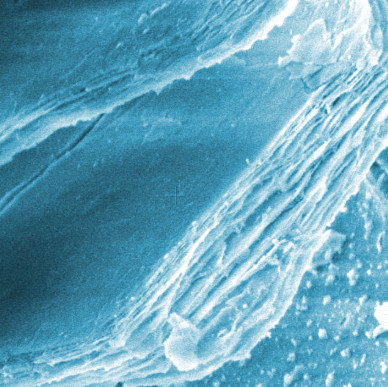Quick success for new filter
 Australian researchers have designed a nano-filter that can clean dirty water over 100 times faster than current technology.
Australian researchers have designed a nano-filter that can clean dirty water over 100 times faster than current technology.
The technology harnesses naturally occurring nano-structures that grow on liquid metals to filter both heavy metals and oils from water at extraordinary speed.
Researchers from RMIT have worked with international colleagues to create an alloy by combining gallium-based liquid metals with aluminium.
When this alloy is exposed to water, nano-thin sheets of aluminium oxide compounds grow naturally on the surface.
These atomically thin layers – 100,000 times thinner than a human hair – restack in a wrinkled fashion, making them highly porous.
This enables water to pass through rapidly while the aluminium oxide compounds absorbs the contaminants.
Experiments so far have shown the nano-filter is efficient at removing lead from water that had been contaminated at over 13 times safe drinking levels, and highly effective in separating oil from water.
The process generates no waste and requires just aluminium and water, with the liquid metals reused for each new batch of nano-structures.
The method developed by the researchers can be used to grow nano-structured materials as ultra-thin sheets and also as nano-fibres.
These different shapes have different characteristics – the ultra-thin sheets used in the nano-filter experiments have high mechanical stiffness, while the nano-fibres are highly translucent.
The ability to grow materials with different characteristics offers opportunities to tailor the shapes to enhance their different properties for applications in electronics, membranes, optics and catalysis.
“Heavy metal contamination causes serious health problems and children are particularly vulnerable,” said RMIT researcher Dr Ali Zavabeti.
“Our new nano-filter is sustainable, environmentally-friendly, scalable and low cost.
“We’ve shown it works to remove lead and oil from water but we also know it has potential to target other common contaminants.
“Previous research has already shown the materials we used are effective in absorbing contaminants like mercury, sulphates and phosphates.
“With further development and commercial support, this new nano-filter could be a cheap and ultra-fast solution to the problem of dirty water.”







 Print
Print